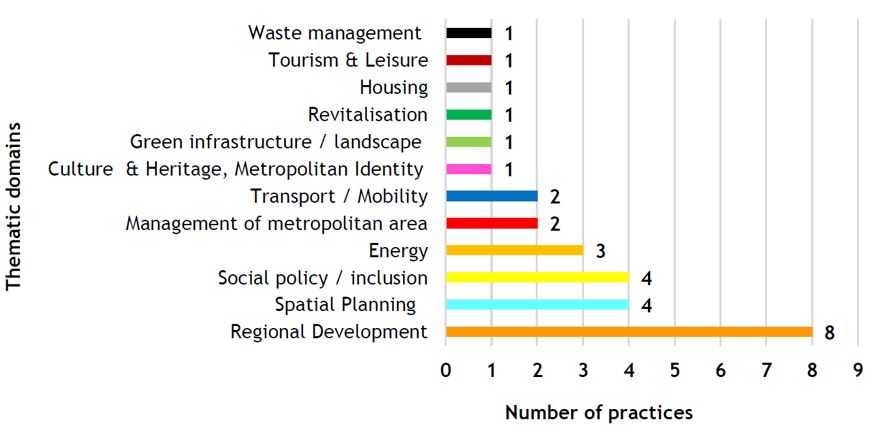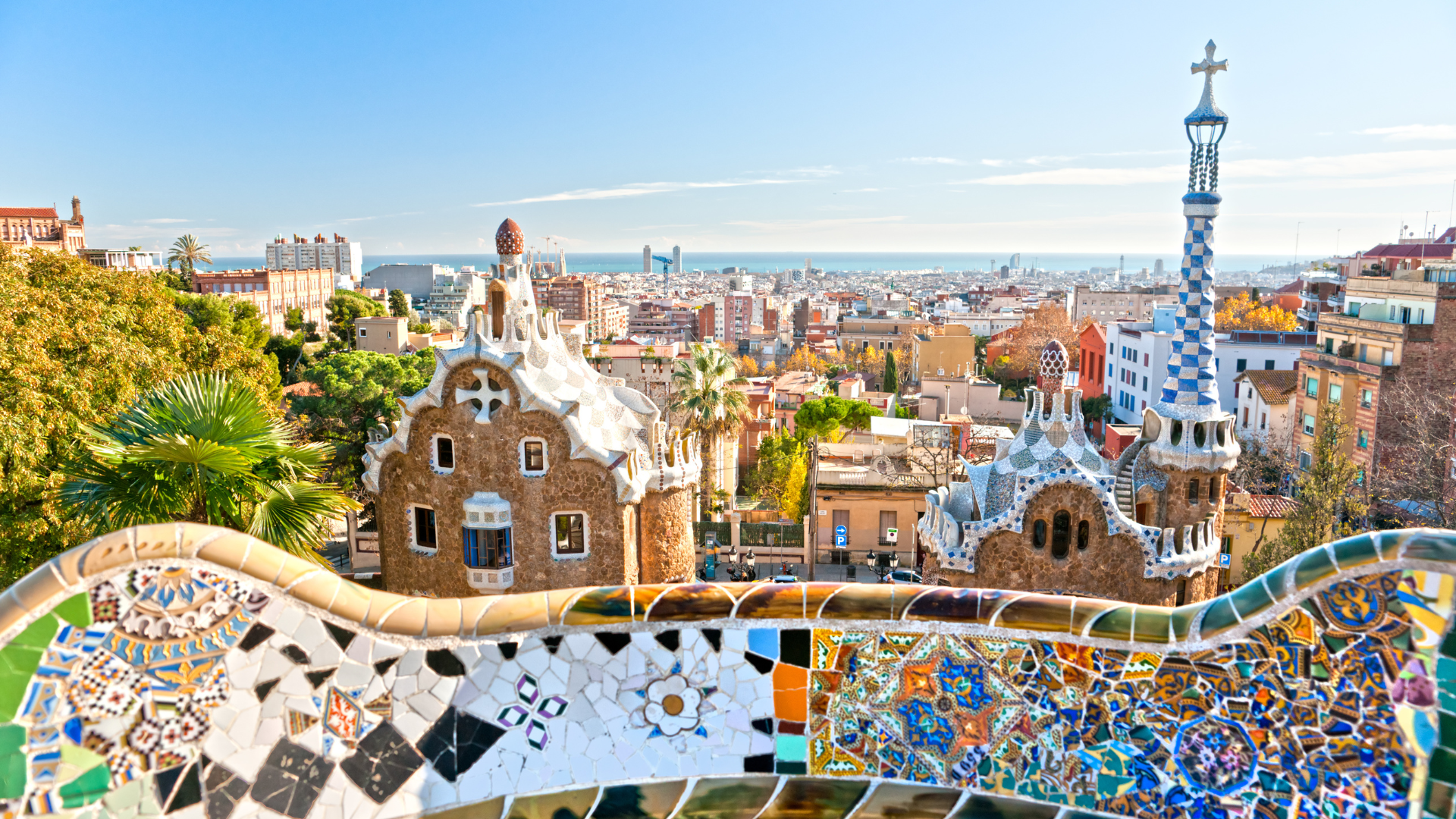Best practices from different regions in Europe outside the MECOG-CE partner consortium aim to broaden the focus beyond Central European solutions. The analysis offers an inspiration or comparison to the state-of-art of metropolitan cooperation and governance instruments in different metropolitan areas.
The practices of selected metropolitan areas were gathered thanks to the following organisations: METREX and Eurocities, Metropolitan Research Institute in Budapest, and were evaluated based on the expert knowledge of the University of Silesia team.
We would also like to express our gratitude to the metropolitan areas for their cooperation and valuable contributions in providing information despite they are not formally involved in the project. The selected metropolitan areas are:
- Barcelona Metropolitan Area (Spain),
- Birmingham Metropolitan Area (United Kingdom),
- Grenoble Metropolitan Area (France),
- Lyon Metropolitan Area (France),
- Metropolitan Region Amsterdam (the Netherlands),
- Oslo Metropolitan Area (Norway),
- Rome Metropolitan Area (Italy),
- Zürich Metropolitan Area (Switzerland).
Main thematic domains of the identified best tools and practices and their response to identified challenges specific for Central European metropolitan areas (MAs)
The study identified 12 key thematic areas where the best tools and practices were implemented. They mostly align with the thematic fields of practices from the project partner metropolitan areas from CE. The most prominent areas of focus were:
- regional development (e.g. West Midlands Deeper Devolution Deal, Birmingham MA; Inter-territorial food project PaiT – Building food distribution networks Grenoble MA),
- spatial planning (e.g. Urbanization concept, Metropolitan Region Amsterdam; Inter-Scot and Common Chapter, Lyon MA),
- social policy/inclusion (e.g. Care Resco – care community project, Zürich MA; Metropolitan Table of Coexistence, Rome MA).

One third of all practices addressed environmental issues (including waste management, revitalisation, green infrastructure etc.). The majority of practices responded to multiple challenges, especially in the regional development field (e.g. Food project for the Lyon territory, Metropolis of Lyon). The selected projects and initiatives also addressed challenges related to metropolitan economies, social inequality/inclusion, urban and rural partnerships, and lack of trust among MA members.
Many practices were of cross-cutting character, particularly from the regional development category. For example, the mentioned Food project for the Lyon territory aims at strengthening the local agricultural production and the whole food system, including social, health, economic, and environmental aspects (integrated approach).
Stakeholder cooperation and bottom-up approaches
The majority of presented tools across various thematic areas were characterised by extensive cooperation among stakeholders from both public and private sectors. Another significant feature was the adoption of a bottom-up, user-centric, or participatory approach to service design and delivery. This often involved incorporating the opinions and ideas of residents or service users into the decision-making process, as well as fostering open communication with metropolitan authorities.
Furthermore, integrated approach to urban challenges is reflected in the creation of comprehensive strategic documents, such as the Metropolitan Urban Master Plan (Barcelona MA) or the Sustainable Urban Mobility Plan (SUMP, Metropolitan City of Capital Rome). This emphasizes the significance of strategic planning as a crucial component of metropolitan development.
In general, most of all selected practices across different thematic fields are process-oriented involving cooperation or agreement and reorganisation of the relationships between partners. These are for instance the governance tools: the Metropolitan Table of Coexistence (Metropolitan City of Capital Rome) or the Development board (Metropolis of Lyon). The former fosters co-design bottom-up processes in providing services for foreigners and migrants in the metropolitan area, so actions targeted at preventing conflicts, promoting tolerance and mutual respect, and cultural and religious diversity. The latter practice, developed in one of the French metropolises, focuses on supporting citizens’ participation in urban planning and development.
In the following stages of the MECOG-CE project, these initiatives can enrich the development of study clusters, by providing valuable perspectives on broader experiences within the specified areas.
Accessible resources and further information
For those interested in learning the specifics of these tools and practices, the Analysis of the best practices outside the CE is available on the project website. Its executive summary with selected best practices can be found here and under the QR code below this article. For those interested in the best practices and tools in Central Europe:
- the report on best practices/ tools is available on the project’s website,
- the executive summary of the governance systems and best practices in each metropolitan area can be found on the project’s website,
- the storymap featuring the 17 best practices selected for further examination provides an interactive way to explore successful examples of metropolitan cooperation and governance.
The documents were elaborated within the project MECOG-CE: Strengthening metropolitan cooperation and governance in Central Europe and is part of the WP1: Analysis of metropolitan dimension, Activity 1.2. Analysis of existing tools/best practices for enhancing metropolitan cooperation.
Authors: Robert Pyka, Krzysztof Bierwiaczonek, Zuzanna Neuve-Église, Małgorzata Suchacka
University of Silesia in Katowice, Faculty of Social Sciences,
Institute of Sociology, Observatory on Urban and Metropolitan Processes

